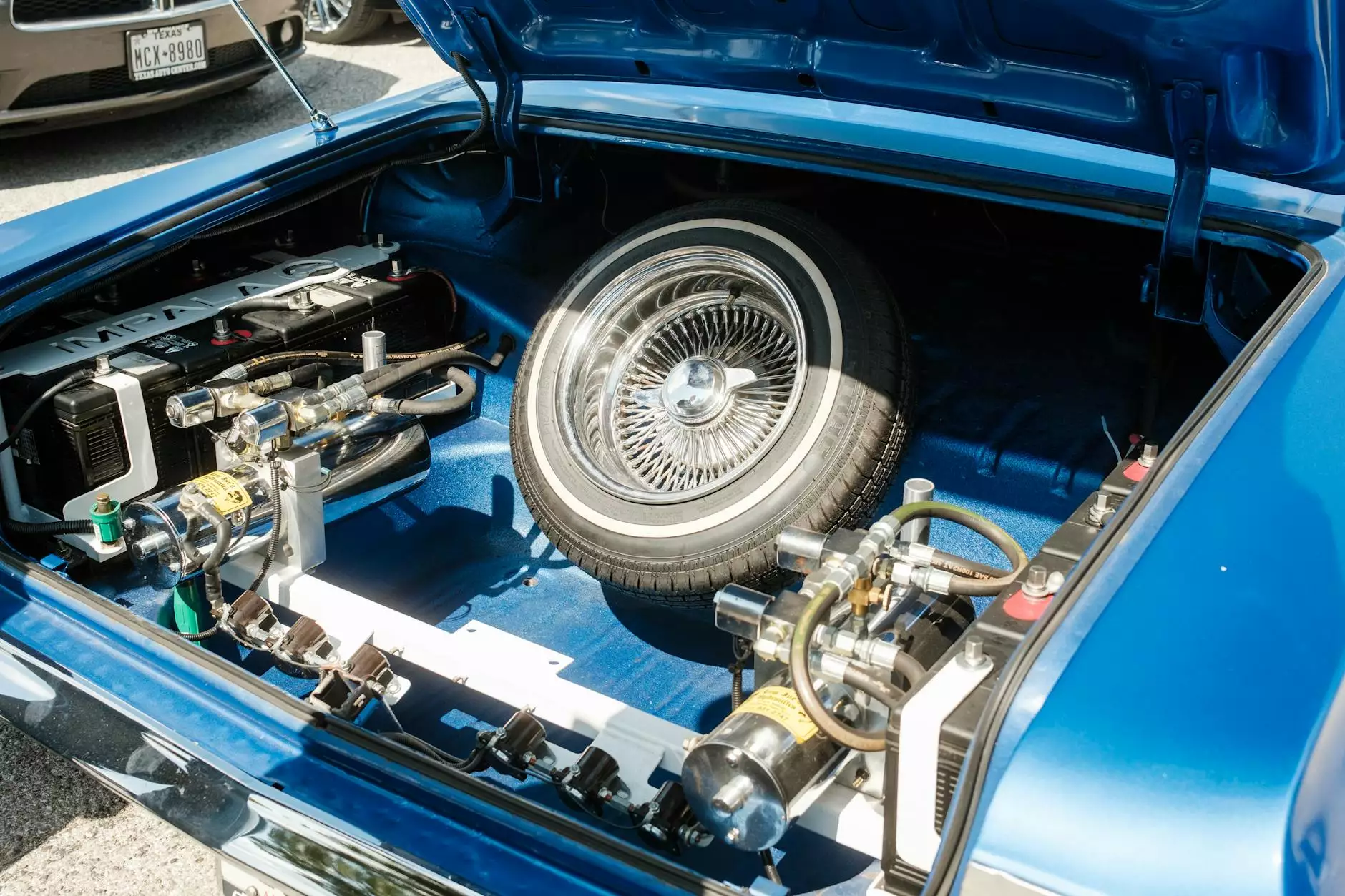Understanding the Role of Hydraulic Component Suppliers in Auto and Motorcycle Parts

Introduction
In the modern automotive and motorcycle industries, the significance of hydraulic component suppliers cannot be overstated. These suppliers play a crucial role in delivering essential components that enhance vehicle performance, reliability, and safety. This article delves into the comprehensive aspects of hydraulic components, focusing on their applications in the auto and motorcycle parts sectors, and why choosing the right supplier is paramount for businesses and consumers alike.
The Importance of Hydraulic Components
Hydraulic systems are integral to numerous functionalities in both automobiles and motorcycles. Comprising various components such as pumps, valves, actuators, and hoses, hydraulic systems provide energy transfer through fluids, enabling different mechanical operations to occur efficiently. Below are some key reasons why hydraulic components are vital:
- Enhanced Performance: Hydraulic systems allow for improved performance in braking, steering, and lifting applications. High-quality components ensure responsive controls and seamless operation.
- Safety Features: Reliable hydraulic components contribute to essential safety systems, such as anti-lock brakes (ABS) and traction control. Ensuring these components are sourced from reputable suppliers is critical.
- Durability and Longevity: Quality hydraulic parts are designed to withstand pressure and wear over time, extending the lifespan of vehicles and reducing overall maintenance costs.
- Efficiency: Hydraulic systems can transmit power more effectively than mechanical systems, resulting in fuel savings and reduced emissions.
Categories of Hydraulic Components
Understanding the various types of hydraulic components available is essential for anyone in the automotive or motorcycle industry. The following categories highlight the diversity of hydraulic components:
1. Hydraulic Pumps
Hydraulic pumps are responsible for converting mechanical energy into hydraulic energy. They are a critical component in any hydraulic system, and their efficiency directly affects overall system performance. Common types include:
- Gear Pumps: Known for their reliability, gear pumps are commonly used in a variety of applications.
- Piston Pumps: These offer high pressure and efficiency, making them ideal for demanding applications.
- Vane Pumps: Suitable for low-pressure applications, these pumps provide smooth operation and good efficiency.
2. Hydraulic Valves
Hydraulic valves control the flow and direction of hydraulic fluid within the system. They are vital for manipulating the movement of actuators and controlling pressures. Key types include:
- Directional Valves: Used to control the path of the hydraulic fluid based on the desired motion.
- Pressure Relief Valves: Protect the hydraulic system from excessive pressure, ensuring safety and longevity.
- Flow Control Valves: Regulate the speed of various hydraulic systems by controlling fluid flow rates.
3. Hydraulic Actuators
Actuators are devices that convert hydraulic energy back into mechanical energy. These components are pivotal for performing work, such as moving parts of a vehicle or motorcycle. Types include:
- Cylinders: These facilitate linear motion and are often used in braking systems, steering, and lifting mechanisms.
- Hydraulic Motors: Convert hydraulic energy into rotational motion, often utilized in equipment like cranes and lifts.
4. Hydraulic Hoses and Fittings
Hydraulic hoses transport the hydraulic fluid between different components, while fittings connect these hoses to other system parts. Ensuring that you use high-quality hoses and fittings is crucial to avoid leaks and failures.
Choosing the Right Hydraulic Component Supplier
As the demand for advanced hydraulic systems continues to rise, selecting the right hydraulic component suppliers becomes increasingly vital. Here are some factors to consider:
1. Quality Assurance
The quality of hydraulic components directly influences the performance and reliability of vehicles and motorcycles. Look for suppliers who adhere to industry standards and offer certifications for their products. High-quality components minimize the risk of failures and enhance overall safety.
2. Product Range
A reputable supplier should provide a wide array of products across different categories. This ensures that businesses can source all necessary components from one location, making logistics easier and potentially reducing costs.
3. Technical Support
Choosing a supplier that offers technical support can be invaluable. This support may come in the form of installation guidance, troubleshooting, and product recommendations, all of which can help businesses operate more effectively.
4. Competitive Pricing
While cost shouldn’t be the only factor when selecting a supplier, competitive pricing is important. Suppliers should provide transparent pricing with no hidden costs, allowing businesses to budget effectively while ensuring quality.
Benefits of Partnering with a Reliable Supplier
Partnering with a trusted hydraulic component supplier yields numerous benefits, significantly impacting operational efficiency and success. Here are some advantages:
- Consistency and Reliability: A dedicated supplier ensures consistent quality and availability of products, which is crucial for maintaining production schedules.
- Customization: Many suppliers offer custom solutions to meet specific needs, enhancing the performance of hydraulic systems in unique applications.
- Faster Turnaround Times: Reliable suppliers can often deliver components more quickly, minimizing downtime in operations.
- Access to Innovations: Suppliers that invest in research and development are likely to provide cutting-edge products that improve efficiency and performance.
The Future of Hydraulic Components in the Automotive and Motorcycle Industries
As technology continues to evolve, so do the innovations within hydraulic systems. The integration of hydraulic components with electronic controls and smart technologies is on the rise. This convergence enhances performance and efficiency while providing enhanced diagnostic capabilities.
Emerging Trends
- Electro-Hydraulic Systems: The combination of hydraulic and electronic systems creates more precise control and automation capabilities.
- Eco-Friendly Fluids: Suppliers are increasingly focusing on sustainability by providing hydraulic fluids that are less harmful to the environment.
- Advanced Materials: Innovation in materials used for hoses, fittings, and components is leading to lighter, more durable options, enhancing overall vehicle performance.
Conclusion
Hydraulic component suppliers play an indispensable role in the automotive and motorcycle industries, providing essential components that ensure optimal performance and safety. By understanding the critical functions of hydraulic components and choosing the right suppliers, businesses can enhance efficiency, reduce costs, and maintain the highest safety standards. Through strategic partnerships and a focus on quality, companies can leverage technological advancements to remain competitive in an ever-evolving market.
Contact Us
If you're in need of high-quality hydraulic components for your automotive or motorcycle applications, Shop Hydraulic America is your trusted partner. Explore our extensive range of products in Auto Parts & Supplies and Motorcycle Parts & Supplies today!



